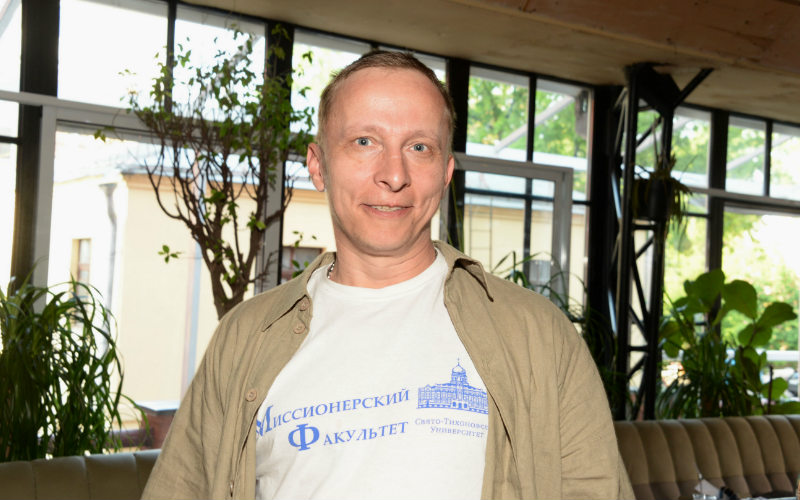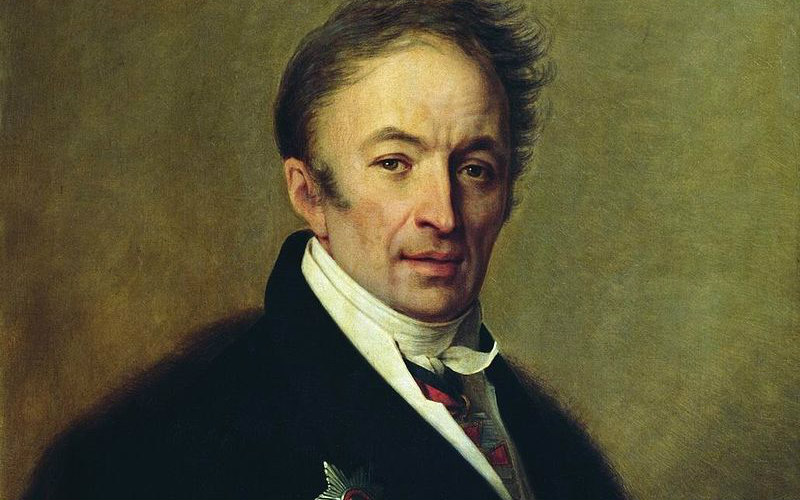What names for boys are considered lucky

We have already said that there is a tenacious belief about “happy” and “unlucky” names. Today we will talk about male names that are believed to bring good luck and luck to their owners.
Alexander
Alexander, according to astrologers, is the most "lucky" name for the stronger sex. Men named like this personify strength - both physical and moral, they are brave, self-confident, smart, often powerful, able to achieve their goals and lead people. Alexander is a born leader and winner.
On practice: the most famous Alexander in world history is Alexander the Great, king of Macedonia since 336, commander, conqueror, creator of the largest state in the history of the Ancient World. The nickname "Great" has been firmly entrenched in him since ancient times, and the image of Alexander has entered world culture.
Among the Alexanders born on Russian soil, the most famous is St. Alexander Nevsky, Prince of Novgorod and Grand Duke of Vladimir. With victories over the Swedes (1240) and German knights (Battle on the Ice, 1242), he secured the western borders of Rus', and with his skillful policy weakened the burdens of the Mongol-Tatar yoke. Another famous commander is Alexander Vasilievich Suvorov (1730-1800), Count Rymniksky, Prince of Italy, Russian commander and generalissimo, who led the Empire to many victories.
"Portrait of Alexander Suvorov", K. Steiben (1815)
Three emperors with these names - Alexander I, Alexander II and Alexander III - did a lot for Russia. But Alexander Nikolaevich Radishchev, an outstanding Russian thinker, writer and publicist, was “on the other side of the barricades”, but he was also passionately rooting for the fate of his native country.
Among Alexandrov there are a huge number of talented artists. These are Alexander Sergeevich Griboyedov, a writer and public figure; and Alexander Pavlovich Bryullov, architect, draftsman, watercolorist; and Alexander Andreevich Ivanov, artist; and Alexander Sergeevich Dargomyzhsky, composer and musician; and Alexander Vasilievich Sukhovo-Kobylin, philosopher, playwright, translator; and Alexander Nikolayevich Ostrovsky, playwright; and Alexander Porfiryevich Borodin, composer and chemist; and Alexander Mikhailovich Opekushin, sculptor and, of course, "the sun of Russian poetry" - Alexander Sergeevich Pushkin.
The series of "brilliant Alexanders" was continued by the talents of the 20th century: science fiction writer Alexander Grin, poet Alexander Blok, director Alexander Tairov, writer and playwright Alexander Volkov, painter and sculptor Alexander Rodchenko, conductor and composer Alexander Gauk, singer, poet and composer Alexander Vertinsky and many, many others. The number of remarkable actors among the Alexandrovs is also amazing: who does not know such outstanding actors as Alexander Zbruev, Alexander Lazarev, Alexander Porokhovshchikov or Alexander Kalyagin?
In addition to the name Alexander, other names starting with the letter “A” are considered one of the most successful for a man, such as Alexei and Anatoly. They say that the first letter in the alphabet speaks for itself - it is inherent in leaders and winners.
Ivan

Frame from the cartoon "Ivan Tsarevich and the Gray Wolf-2" film company "STV"
Ivan, according to popular belief, is also a very lucky name - it is not for nothing that it has come to us from time immemorial. Let us recall, for example, Russian folk tales - in them Ivan achieves all kinds of well-being and will certainly marry the princess. They say that Ivanov herself protects from troubles and hardships - perhaps due to an easy, non-conflict character.
On practice: among the Russian rulers there were many Ivans: for example, Ivan I Danilovich Kalita, Prince of Moscow (from 1325), Grand Duke of Vladimir (from 1328). He laid the foundations for the political and economic power of Moscow, and also obtained from the Golden Horde the right to collect the Mongol-Tatar tribute in Rus'. Ivan III is also known, during whose reign a significant part of the Russian lands around Moscow was united and turned into the center of a single state. Ivan Vasilievich the Terrible - the Grand Duke of "All Rus'" and the first Russian Tsar - is a controversial figure, but no less significant for national history.
Among the Ivanovs at all times there were many talented inventors and innovators who moved progress forward: this is Ivan Fedorov, the famous first printer in Rus' and Ukraine; and Ivan Ivanovich Polzunov - one of the most famous domestic inventors, and Ivan Petrovich Kulibin, a gifted self-taught mechanic, and Ivan Ivanovich Orlov, an inventor in the field of printing production. The name "Ivan" in the minds of those who know history is also associated with the names of famous travelers - for example, with the admiral and great navigator Ivan Fedorovich Kruzenshtern.
Coincidence or not, but Ivans often prove themselves as heroes both in war and in peacetime. We all remember such names as Ivan Stepanovich Konev, Marshal of the Soviet Union, twice Hero of the Soviet Union; Ivan Danilovich Chernyakhovsky, twice Hero of the Soviet Union, commander of the 3rd Belorussian Front, army general; Ivan Nikitovich Kozhedub, the most successful fighter pilot in Allied aviation, three times Hero of the Soviet Union; Ivan Vasilyevich Turkenich, commander of the underground anti-fascist Komsomol organization Young Guard, which operated in German-occupied Krasnodon, and, of course, Ivan Dmitrievich Papanin, hero of the Arctic, leader of the North Pole-1 expedition, twice Hero of the Soviet Union.
And what about the Ivanovs with the creative component? They show themselves both as talented writers (Ivan Andreevich Krylov, Ivan Ivanovich Lazhechnikov, Ivan Alexandrovich Goncharov, Ivan Sergeevich Turgenev, etc.), and as gifted artists (Ivan Ivanovich Shishkin, Ivan Nikolaevich Kramskoy, Ivan Konstantinovich Aivazovsky). There are many famous actors and directors among people with this name: from Ivan Alexandrovich Pyryev to Ivan Okhlobystin.

Ivan Okhlobystin Legion-media
Nicholas
The name Nikolai is credited with special strength and firmness. They say that Nicolai is always, even in the most difficult situations, able to “save face”, show prudence and firmness, so men named like that confidently achieve their goals. By the way, this name is translated from ancient Greek as "the conqueror of the peoples."
On practice: it is not clear whether this can be considered a coincidence, but among the Nikolaevs we find, perhaps, the largest number of public and political figures, each of whom, based on his own convictions, wished the best for his country. For example, Nikolai Ivanovich Turgenev, Decembrist. Or Nikolai Alexandrovich Speshnev, a Russian revolutionary from the nobility. Or Nikolai Nikolaevich Yudenich, infantry general, one of the most successful generals of the Russian Empire during the First World War, and during the Civil War - the commander of the troops operating against the Soviet regime in the North-West direction. Or Nikolai Semyonovich Chkheidze, a Russian-Georgian politician, one of the leaders of the Mensheviks. In a series of well-known revolutionaries named Nikolai, there is Nikolai Ernestovich Bauman (revolutionary pseudonym Grach), and Nikolai Alexandrovich Alekseev, a member of the RSDLP since 1897, an employee of Iskra, and Nikolai Ivanovich Bukharin, a participant in the revolution of 1905-1907. and October 1917, and many others.
Closely adjoining them are progressive-minded publicists - such as Nikolai Mikhailovich Karamzin, Nikolai Alexandrovich Dobrolyubov and Nikolai Gavrilovich Chernyshevsky.

“Portrait of N.M. Karamzin”, A. Venetsianov (1828)
Our history also knows many outstanding scientists with this name: such as Nikolai Nikolaevich Zinin, Russian organic chemist, founder of the Russian scientific school; Nikolai Ivanovich Lobachevsky - the great Russian mathematician, creator of non-Euclidean geometry, Nikolai Ivanovich Pirogov, Russian surgeon, anatomist and teacher, Nikolai Nikolaevich Beketov, founder of the national school of physical chemists, Nikolai Vasilyevich Sklifosovsky, a brilliant surgeon and researcher, Nikolai Yegorovich Zhukovsky, founder of modern hydrodynamics and aerodynamics , Nikolai Dmitrievich Zelinsky, the author of fundamental discoveries in the field of hydrocarbon synthesis, and Nikolai Vasilyevich Nikitin, according to whose project the Ostankino Tower in Moscow was built.
There are many truly great writers and poets among Nikolaev: Nikolai Alekseevich Nekrasov, Nikolai Vasilyevich Gogol, Nikolai Semenovich Leskov, Nikolai Stepanovich Gumilyov, Nikolai Alekseevich Ostrovsky, Nikolai Mikhailovich Rubtsov.
Among our contemporaries, Nikolaev, there are many wonderful actors, singers and athletes: Nikolai Fomenko, Nikolai Gnatyuk, Nikolai Rastorguev, Nikolai Baskov, gymnast Nikolai Andrianov, boxer Nikolai Valuev.
There are other male names that are considered lucky. For example, Oleg and Mikhail. But we will talk about them next time.
What does science say?
The science of anthroponymy studies names, patronymics, surnames, nicknames, pseudonyms, as well as their origin and evolution. With its help, several practical recommendations have been developed, which are probably worth listening to:
It is important that the name goes well with the surname and patronymic. You need to pay attention to the length of these words, the number of vowels and consonants in them. The more pleasant and melodious the combination of the surname and patronymic sounds, the faster the person will win over those around him;
It is better that the name of the child corresponds to the norms and criteria of the society in which he will live. Too ornate and obviously borrowed names often cause rejection;
For girls, it is preferable that the name be “rubber”: then it will be possible to form many diminutive forms from it. For example, Ksenia, Ksyusha, Ksyushenka, Ksyunya, Ksyuta, etc.;
You should not name babies in honor of relatives - and not at all because they can repeat their fate. But simply because by doing so you drive your child into a certain framework, and expect certain behavior and actions from him;
A similar rule applies to creative parents seeking to name their offspring after a famous person. It is quite possible that Comandante Che Guevara is dear to your heart, and you want to name your child Ernesto. But suddenly, having matured, your child will choose Jawaharlal Nehru as his idol?